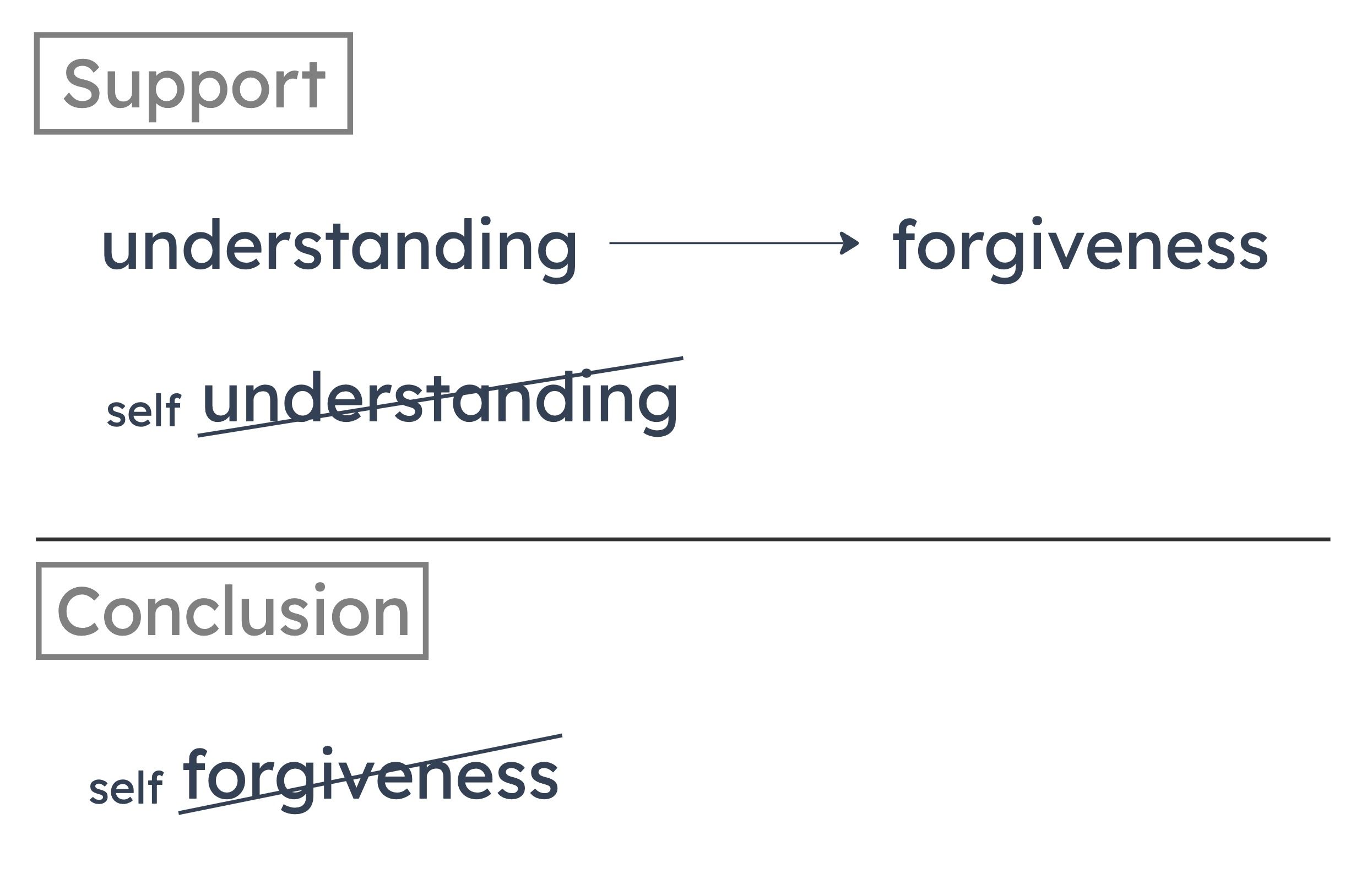LSAT 152 – Section 1 – Question 15
LSAT 152 - Section 1 - Question 15
November 2018You need a full course to see this video. Enroll now and get started in less than a minute.
Target time: 1:22
This is question data from the 7Sage LSAT Scorer. You can score your LSATs, track your results, and analyze your performance with pretty charts and vital statistics - all with a Free Account ← sign up in less than 10 seconds
| Question QuickView |
Type | Tags | Answer Choices |
Curve | Question Difficulty |
Psg/Game/S Difficulty |
Explanation |
|---|---|---|---|---|---|---|---|
| PT152 S1 Q15 |
+LR
| Flaw or descriptive weakening +Flaw Conditional Reasoning +CondR | A
79%
163
B
11%
156
C
7%
155
D
1%
152
E
2%
149
|
139 149 158 |
+Medium | 148.23 +SubsectionMedium |
Summarize Argument
The author concludes that complete self-forgiveness is unattainable. He supports this by saying that completely understanding someone leads to completely forgiving them, but complete self-understanding is unattainable.


Identify and Describe Flaw
This is the cookie-cutter flaw of mistaking sufficiency and necessity. The author concludes that complete self-forgiveness is unattainable because complete self-understanding is unattainable. In doing so, he treats “understanding” as necessary for “forgiveness.” But according to his premises, “understanding” is merely sufficient. So negating “understanding” tells us nothing about “forgiveness.”
In other words, the author treats complete understanding as the only way to bring about forgiveness. But maybe it’s possible to forgive yourself completely, even though you can’t understand yourself completely.
In other words, the author treats complete understanding as the only way to bring about forgiveness. But maybe it’s possible to forgive yourself completely, even though you can’t understand yourself completely.
A
treats the failure to satisfy a condition that brings about a particular outcome as if satisfying that condition is the only way to realize the outcome
The author treats the failure to satisfy “understanding,” which is sufficient to bring about “forgiveness,” as if satisfying “understanding” is the only way to bring about “forgiveness.” But what if self-forgiveness is attainable, even though self-understanding is not?
B
confuses something that is necessary for an action to occur with something that necessarily results from that action
Actually, the author confuses something that is sufficient for an action to occur with something that is necessary for that action to occur. He doesn’t confuse a conditional claim with a causal claim like (B) suggests.
C
takes for granted that something that has merely been said to be true is, in fact, true
The author doesn't assume that it’s true that complete understanding leads to complete forgiveness merely because it has been said to be true. He just says that if this is true, then complete self-forgiveness is unattainable.
D
ignores the possibility that a state of affairs is desirable even if it cannot be attained
The argument is about whether complete self-forgiveness and understanding are possible, not whether they are desirable. Also the author seems to acknowledge that complete self-understanding is desirable, even though it’s unattainable.
E
uses the difficulty of attaining a state of affairs as a reason for not attempting to attain it
The author doesn't make any claims about whether one should or should not attempt to attain self-forgiveness and understanding. Also, he doesn’t argue that self-forgiveness and understanding are simply difficult; he argues that they’re unattainable.
Take PrepTest
Review Results
LSAT PrepTest 152 Explanations
Section 1 - Logical Reasoning
- Question 01
- Question 02
- Question 03
- Question 04
- Question 05
- Question 06
- Question 07
- Question 08
- Question 09
- Question 10
- Question 11
- Question 12
- Question 13
- Question 14
- Question 15
- Question 16
- Question 17
- Question 18
- Question 19
- Question 20
- Question 21
- Question 22
- Question 23
- Question 24
- Question 25
Section 2 - Logical Reasoning
- Question 01
- Question 02
- Question 03
- Question 04
- Question 05
- Question 06
- Question 07
- Question 08
- Question 09
- Question 10
- Question 11
- Question 12
- Question 13
- Question 14
- Question 15
- Question 16
- Question 17
- Question 18
- Question 19
- Question 20
- Question 21
- Question 22
- Question 23
- Question 24
- Question 25
Section 3 - Reading Comprehension
- Passage 1 – Passage
- Passage 1 – Questions
- Passage 2 – Passage
- Passage 2 – Questions
- Passage 3 – Passage
- Passage 3 – Questions
- Passage 4 – Passage
- Passage 4 – Questions
Leave a Reply
You must be logged in to post a comment. You can get a free account here.